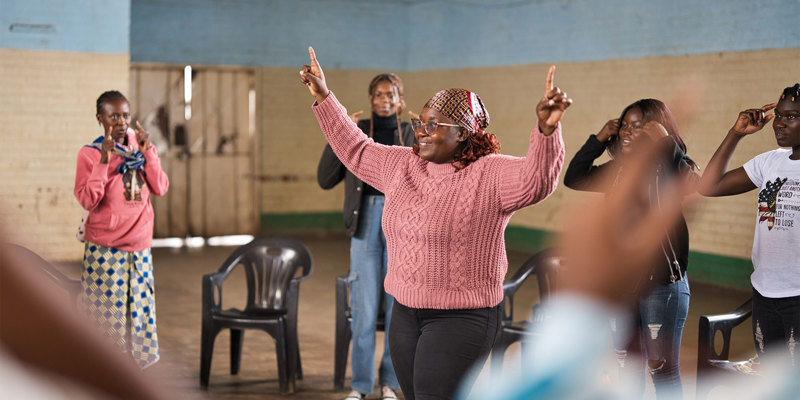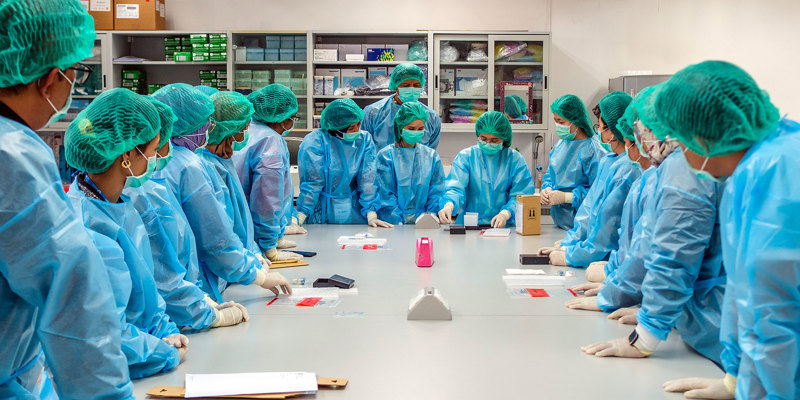Global Fund Grants in the Republic of Burundi
27 September 2023
Burundi was classified by the Global Fund as a Challenging Operating Environment (COE). As such, it has been operating under the Additional Safeguard Policy (ASP) since 2016, following an assessment taking into consideration parameters including the Principal Recipient and Country Coordination Mechanism capacity, External Risk Index and security context. It faced two major malaria resurgences with hospital incidence reaching 819 cases per 1,000 population in the past five years. Despite these challenges, the country, with support from partners, has managed to achieve strong progress in the fight against HIV, stabilized the mortality rate of malaria and reduced the incidence of tuberculosis (TB) by 12% in the past five years.
Burundi is on track to achieve the UNAIDS target with 85% of people living with HIV under antiretroviral therapy in 2022. However, the HIV treatment coverage remains low for children under 15 (37%). The effectiveness of HIV prevention and testing among key populations is limited, partly due to human rights barriers. The TB treatment success rate is high, but case notification is low (54%), mostly due to the passive approach of TB testing that does not bring testing to communities but expects patients to reach out to health facilities.
Malaria mortality has declined due to the effectiveness of the country’s case management system, but the increasing incidence over the past few years questions the efficiency and effectiveness of the current national response. In addition, oversight exercised at various levels during the last Long Lasting Insecticidal Nets (LLIN) mass distribution campaign was inadequate, resulting in diversion and/or overdistribution risks not being mitigated, affecting approximately half a million LLINs. Therefore, the OIG finds the processes supporting an effective and timely implementation of interventions for HIV, TB and malaria to ensure access to quality services by beneficiaries to be partially effective.
Availability of key drugs, limited number of expiries and effective tracking of key health products across all levels of the health system is ensured by an adequate quantification process, effective stock monitoring mechanism, and the timely execution of procurements and distribution of commodities to districts. There is potential for improvement in the ongoing electronic logistic management information system (eLMIS) project implementation and in creating better storage conditions at both central and district levels. The controls and processes in place to ensure continuous availability of quality-assured health commodities and accountability across the supply chain are assessed as effective.
The staffing of UGADS, the procurement arrangement, as well grant management processes and tools need to be improved to support the Ministry of Health’s strategic vision to manage grants from donors on behalf of the Republic of Burundi. The challenges faced by the Project Management Unit (PMU) have resulted in key activities not being completed and accordingly low absorption of the allocated grant during the first year (20% of the budget).
The OIG also identified weaknesses around the planning, coordination and supervision processes of the second Principal Recipient (UNDP4). The governance, oversight mechanism and implementation arrangement in place to ensure accountability, as well as timely and effective implementation of grant activities, are partially effective.







